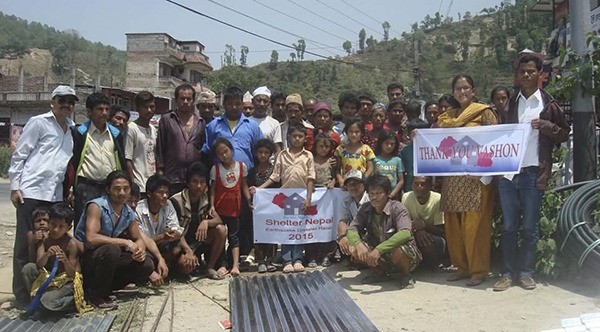Since a large earthquake devastated Nepal in April, islanders have donated more than $20,000 to the relief and rebuilding efforts there.
The donations exceeded expectations on the island, but those close to the country say the situation in Nepal is extremely difficult.
“We are looking at a multi-year recovery. The need will be ongoing, said islander George Lewis, a former director of the U.S. Agency for International Development in Nepal.
The monsoon season will begin this month, Lewis said, which will bring many challenges. People also need to plant food for the coming year now, and the seed stock has been depleted, as many seeds were buried in the quake when buildings were damaged. Furthermore, seeds out in the open will rot in the rain, and food is a large concern.
Food, seeds, shelter and the usual concerns — water, sanitation and access to health care — will all be a challenge in the months ahead, he added.
Lewis noted that Nepal’s largest source of foreign currency is remittances — money sent back from Nepalese citizens working abroad. This, too, creates challenges for rebuilding.
“The problem with remittances is that it means the able bodies are out of the country,” he said.
On Vashon, the largest contributions came from a fundraising event last month, which drew about 100 people and brought in just short of $10,000, according to Erik Steffens, one of the organizers. A variety of other donations throughout the island have more than doubled that amount, and funds have gone to large international organizations, such as Doctors Without Borders and Save the Children, as well as to small grassroots efforts that are working to address the needs of people in rural villages.
Nana’s House, one of the small organizations that benefitted from the May fund-
raiser, was founded by islander Joshua Bingham and garnered $1,000. Those funds enabled Bingham and others to build a temporary shelter for a school in a small village called Deurali. Government engineers had deemed the original school unsafe, Bingham said, and because only 45 students attend, it was near the bottom of the government’s reconstruction priority list. With the monsoons approaching, the school needed a temporary shelter to maintain classes. Donations for earthquake relief are still welcome, Bingham added.
Last month’s fundraiser also brought in more than $4,000 for Shelter Nepal, a small organization run by the brother of islander Anu Rana. Originally set up as an orphanage in Kathmandu in 2006 during Nepal’s civil war, it changed its focus after the quake to assist people in outlying areas. With proceeds from bake sales the Ranas and their Vashon family members held and a designated portion of their income from their baked goods business, they have wired $9,000 to Shelter Nepal. With those funds, the organization has been able to assist 35 families in the village of Goganpani, providing building materials, clothes and money.
More than a month after the quake, Birbal Rana, Anu’s husband, said that the assistance from Shelter Nepal was the first aid the villagers had received.
Several other businesses, groups and individuals have also made donations.
The employees of Pacific Research raised $2,525 to assist their coworker Pasang Sherpa, who has family in Thame, a village near the base of Mount Everest that was destroyed, according to Jeannette Smith, who spoke on behalf of the company.
Vashon Thriftway donated $2,000 to the Red Cross for its work in Nepal and food for the Vashon Loves Nepal fundraiser. Individually, Norm and Jan Mathews, Thriftway owners, donated $1,000 for relief efforts.
Shortly after the quake, a group of islanders gathered at Hogsback Farm and raised some $2,500, Joseph Bogaard said. They sent it to the Alpine Ascents Foundation Thame Fund, which is being tapped to rebuild Thame.
The Harbor School donated some $750, and children at Chautauqua and their families raised more than $2,000 for Heifer International’s work in Nepal. Just this past weekend, a yoga instructor taught a class aiming to send the donations to Nepal, and Birbal Rana said people continue to ask him how to donate when they stop by the family’s Farmers Market booth.
Lewis added that he and other Nepal supporters are encouraging travel there next year to help the country. The ground will settle, he said, and people should go and bolster the tourist economy.
“It is a glorious, exotic learning experience to travel there and mingle with the Nepalese people,” he said.



